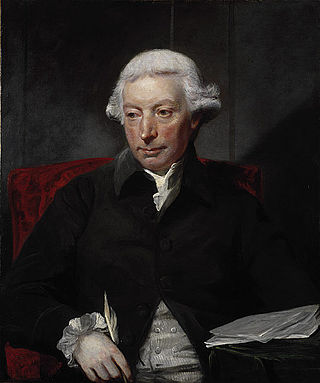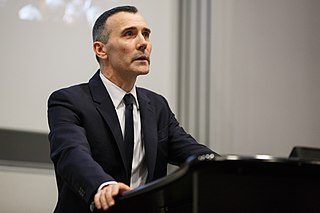Related Research Articles

Niccolò di Bernardo dei Machiavelli was an Italian diplomat, author, philosopher and historian who lived during the Renaissance. He is best known for his political treatise The Prince, written around 1513 but not published until 1532, five years after his death. He has often been called the father of modern political philosophy and political science.

Thomas Hobbes was an English philosopher. Hobbes is best known for his 1651 book Leviathan, in which he expounds an influential formulation of social contract theory. In addition to political philosophy, Hobbes contributed to a diverse array of other fields, including history, jurisprudence, geometry, theology, and ethics, as well as philosophy in general. He is considered to be one of the founders of modern political philosophy.

Sir Isaiah Berlin was a Russian-British social and political theorist, philosopher, and historian of ideas. Although he became increasingly averse to writing for publication, his improvised lectures and talks were sometimes recorded and transcribed, and many of his spoken words were converted into published essays and books, both by himself and by others, especially his principal editor from 1974, Henry Hardy.

Adam Ferguson,, also known as Ferguson of Raith, was a Scottish philosopher and historian of the Scottish Enlightenment.
Modernity, a topic in the humanities and social sciences, is both a historical period and the ensemble of particular socio-cultural norms, attitudes and practices that arose in the wake of the Renaissance—in the Age of Reason of 17th-century thought and the 18th-century Enlightenment. Some commentators consider the era of modernity to have ended by 1930, with World War II in 1945, or the 1980s or 1990s; the following era is called postmodernity. The term "contemporary history" is also used to refer to the post-1945 timeframe, without assigning it to either the modern or postmodern era.

Charles Margrave Taylor is a Canadian philosopher from Montreal, Quebec, and professor emeritus at McGill University best known for his contributions to political philosophy, the philosophy of social science, the history of philosophy, and intellectual history. His work has earned him the Kyoto Prize, the Templeton Prize, the Berggruen Prize for Philosophy, and the John W. Kluge Prize.

Ian MacDougall Hacking was a Canadian philosopher specializing in the philosophy of science. Throughout his career, he won numerous awards, such as the Killam Prize for the Humanities and the Balzan Prize, and was a member of many prestigious groups, including the Order of Canada, the Royal Society of Canada and the British Academy.

Early modern philosophy is a period in the history of philosophy that overlaps with the beginning of the period known as modern philosophy.

Liberty is the state of being free within society from oppressive restrictions imposed by authority on one’s way of life, behavior, or political views.
Classical republicanism, also known as civic republicanism or civic humanism, is a form of republicanism developed in the Renaissance inspired by the governmental forms and writings of classical antiquity, especially such classical writers as Aristotle, Polybius, and Cicero. Classical republicanism is built around concepts such as liberty as non-domination, self-government, rule of law, property-based personality, anti-corruption, abolition of monarchy, civics, civil society, common good, civic virtue, popular sovereignty, patriotism and mixed government.
John Greville Agard Pocock is a New Zealand historian of political thought. He is especially known for his studies of republicanism in the early modern period, his work on the history of English common law, his treatment of Edward Gibbon and other Enlightenment historians, and, in historical method, for his contributions to the history of political discourse.

Stanley Jeyaraja Tambiah was a social anthropologist and Esther and Sidney Rabb Professor (Emeritus) of Anthropology at Harvard University. He specialised in studies of Thailand, Sri Lanka, and Tamils, as well as the anthropology of religion and politics.
Alan James Ryan is a British philosopher. He was Professor of Politics at the University of Oxford. He was also Warden of New College, Oxford, from 1996 to 2009. He retired as Professor Emeritus in September 2015 and lives in Summertown, Oxford.

Virtù is a concept theorized by Niccolò Machiavelli, centered on the martial spirit and ability of a population or leader, but also encompassing a broader collection of traits necessary for maintenance of the state and "the achievement of great things."

Classical realism is an international relations theory from the realist school of thought. Realism makes the following assumptions: states are the main actors in the international relations system, there is no supranational international authority, states act in their own self-interest, and states want power for self-preservation. Classical realism differs from other forms of realism in that it places specific emphasis on human nature and domestic politics as the key factor in explaining state behavior and the causes of inter-state conflict. Classical realist theory adopts a pessimistic view of human nature and argues that humans are not inherently benevolent but instead they are self-interested and act out of fear or aggression. Furthermore, it emphasizes that this human nature is reflected by states in international politics due to international anarchy.
William Rand was an English physician who projected general reforms in medical education, practice and publication. His views were Paracelsian and Helmontian, and he participated in the Hartlib Circle.
In intellectual history and the history of political thought, the Cambridge School is a loose historiographical movement traditionally associated with the University of Cambridge, where many of those associated with the school held or continue to hold academic positions, including Quentin Skinner, J. G. A. Pocock, Peter Laslett, John Dunn, James Tully, David Runciman, and Raymond Geuss.

Richard Bourke is a UK-based Irish academic specialising in the history of political ideas. His work spans ancient and modern thought, and is associated with the application of the historical method to political theory. He is Professor of the History of Political Thought at the University of Cambridge, and a Fellow of King's College, Cambridge. He was formerly Professor of the History of Political Thought and Co-Director of the Centre for the Study of the History of Political Thought at Queen Mary, University of London. In July 2018 Bourke was elected a Fellow of the British Academy (FBA).
David Ewart George Boucher FRHISTS FACSS FLSW is a Welsh political theorist and philosopher of international relations.
References
- ↑ "People | Centre for the History of Political Thought".
- ↑ "QMUL academic staff profiles, Quentin Skinner".
- 1 2 3 4 5 "CV". projects.history.qmul.ac.uk. Retrieved 5 May 2020.
- ↑ "Interview with Professor Quentin Skinner – Making History".
- ↑ Jeffries, Stuart (30 November 2002). "The quest for truth". The Guardian.
- 1 2 3 4 "Professor Quentin Skinner".
- ↑ "Academy of Europe: Skinner Quentin".
- 1 2 3 4 5 "Professor Quentin Skinner – School of History".
- ↑ "Quentin R D Skinner". 19 October 2015.
- ↑ "General Prize Committee".
- ↑ "Five New Members on the General Prize Committee".
- ↑ Pocock, J. G. A. (1960). Politics, Language, and Time: Essays on Political Thought and Intellectual History. Chicago, IL: University of Chicago Press.
- 1 2 Skinner, Quentin (2002). Visions of Politics Volume 1: Regarding Method. Cambridge: Cambridge University Press.
- ↑ Skinner, Quentin (2002). "4: Meaning and Understanding in the History of Ideas". Visions of Politics Volume 1: Regarding Method (Online ed.). Cambridge: Cambridge University Press. p. 82. doi:10.1017/CBO9780511790812. ISBN 9780511790812 . Retrieved 26 March 2021.
- ↑ "Talking to Thinkers with Quentin Skinner 2 Nov 2020". YouTube. Retrieved 26 March 2021.
- ↑ Skinner, Quentin (2002). "Introduction". Visions of Politics Volume 1: Regarding Method (Online ed.). Cambridge: Cambridge University Press. p. 2. doi:10.1017/CBO9780511790812. ISBN 9780511790812 . Retrieved 26 March 2021.
- ↑ Skinner, Quentin (2002). "Introduction". Visions of Politics Volume 1: Regarding Method (Online ed.). Cambridge: Cambridge University Press. p. 2. doi:10.1017/CBO9780511790812. ISBN 9780511790812 . Retrieved 26 March 2021.
- ↑ Skinner, Quentin (2002). "4: Meaning and Understanding in the History of Ideas". Visions of Politics Volume 1: Regarding Method (Online ed.). Cambridge: Cambridge University Press. p. 82. doi:10.1017/CBO9780511790812. ISBN 9780511790812 . Retrieved 26 March 2021.
- ↑ "Talking to Thinkers with Quentin Skinner 2 Nov 2020". YouTube. Retrieved 26 March 2021.
- ↑ Sen, Amartya (2021). Home in the World. London: Penguin. p. 317-8. ISBN 9780141970981.
- ↑ "Quentin Skinner".
- ↑ "The Hundred Most Influential Books Since the War". Bulletin of the American Academy of Arts and Sciences. 49 (8): 12–18. 1996. doi:10.2307/3824697. JSTOR 3824697.
- ↑ "Bringing off the miracle of resurrection". 13 May 2009.
- ↑ "Quentin Skinner Lectureship – CRASSH". www.crassh.cam.ac.uk. Retrieved 12 April 2020.